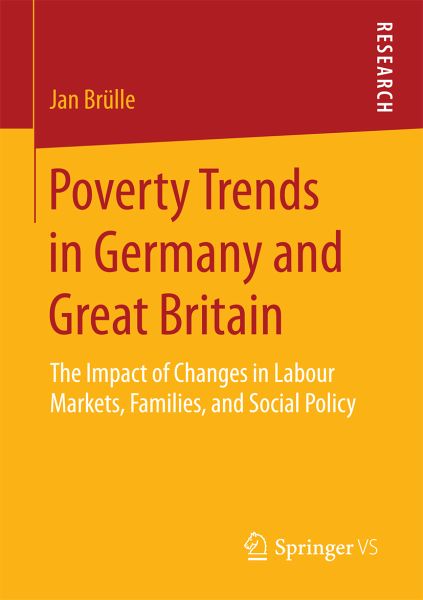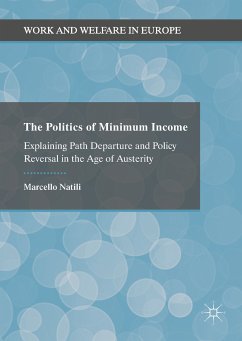
Poverty Trends in Germany and Great Britain (eBook, PDF)
The Impact of Changes in Labour Markets, Families, and Social Policy
Versandkostenfrei!
Sofort per Download lieferbar
48,95 €
inkl. MwSt.
Weitere Ausgaben:

PAYBACK Punkte
24 °P sammeln!
Jan Brülle shows how poverty risks in Germany between 1992 and 2012 increased concentrated on those with low educational levels, in lower occupational positions, and with precarious employment careers, as the country's welfare state failed to adapt to widening inequalities in households' market incomes. Contrasting the German experience with Great Britain, where social transfers to low-income families in concert with favourable labour market conditions helped to reduce poverty between 1992 and the global financial crisis, he presents the most comprehensive comparative study on poverty trends ...
Jan Brülle shows how poverty risks in Germany between 1992 and 2012 increased concentrated on those with low educational levels, in lower occupational positions, and with precarious employment careers, as the country's welfare state failed to adapt to widening inequalities in households' market incomes. Contrasting the German experience with Great Britain, where social transfers to low-income families in concert with favourable labour market conditions helped to reduce poverty between 1992 and the global financial crisis, he presents the most comprehensive comparative study on poverty trends in these two countries to date. Moving beyond a cross-sectional perspective on poverty, the author analyses why it became not only more frequent in Germany, but also more persistent in individual life-courses, and why faster exits have driven the decline in poverty in Great Britain.
Dieser Download kann aus rechtlichen Gründen nur mit Rechnungsadresse in A, B, BG, CY, CZ, D, DK, EW, E, FIN, F, GR, HR, H, IRL, I, LT, L, LR, M, NL, PL, P, R, S, SLO, SK ausgeliefert werden.












